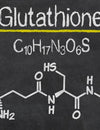We have several factors affecting memory and cognition.
There are 4 important factors we have control over. First important factor is the blood supply to the brain. This factor means good circulation, providing the necessary nutrients to the nervous system and removing waste products (Lal BK, et.al., 2017).
Keeping inflammation low is also important. An increase of specific inflammatory markers has been associated with decreased cognition (Trollor JN, et.al., 2010). Oxidative stress, which causes damage to the nervous system from free radicals, is recognized as one of the reasons for brain degenerative diseases (Manoharan S, et.al., 2016). Insulin resistance is a major reason for neurodegeneration causing cognitive impairment and memory abnormalities (De La Monte SM, 2012).
Insulin resistance is a process where the receptors on the cells are getting less sensitive to the insulin which role is to transfer the blood glucose into the cells where it can be used for energy. Let's take a closer look at how you may be able to see if blood supply and circulation is inadequate and if it may have a negative effect on your memory.
This study showed that home measurement of blood pressure was a way to detect vascular related cognitive impairment (Yeung SE, Loken Thomton W, 2017). As you get older you, you don't want your systolic blood pressure to increase. That's the top number when you measure your blood pressure. You should look at the number associated with decreasing cognition as this number increased. You can help to keep your blood pressure in a good range by eating a low glycemic index, high nutrient diet. This also lower inflammation and free radical damage. I will explain more about these reasons for memory loss in upcoming videos.
References:
Trollor, J. N., Smith, E., Baune, B. T., Kochan, N. A., Campbell, L., Samaras, K., ... & Sachdev, P. (2010). Systemic inflammation is associated with MCI and its subtypes: the Sydney Memory and Aging Study. Dementia and geriatric cognitive disorders, 30(6), 569-578.
Suzanne, M. (2012). Metabolic derangements mediate cognitive impairment and Alzheimer's disease: role of peripheral insulin resistance diseases. Panminerva medica, 54(3), 171.
Yeung, S. E., & Thornton, W. L. (2017). Do it-yourself: Home blood pressure as a predictor of traditional and everyday cognition in older adults. PloS one, 12(5), e0177424.
Lal, B. K., Dux, M. C., Sikdar, S., Goldstein, C., Khan, A. A., Yokemick, J., & Zhao, L. (2017). Asymptomatic carotid stenosis is associated with cognitive impairment. Journal of Vascular Surgery.
Manoharan, S., Guillemin, G. J., Abiramasundari, R. S., Essa, M. M., Akbar, M., & Akbar, M. D. (2016). The role of reactive oxygen species in the pathogenesis of Alzheimer's disease, Parkinson's disease, and Huntington's disease: a mini review. Oxidative medicine and cellular longevity, 2016.







